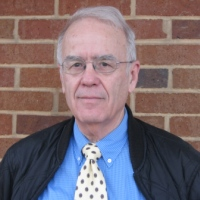Thermodynamics 2.0 | 2022 Program: Sessions and Abstracts
Mon - Wed, July 18 - July 20 , 2022 , Boone, North Carolina
Session T10: Dissipative Structure
15:15-16:15. Tuesday July 19, 2022
Chair: Michael Francis McCullough
Title: Exploring a Thermodynamics of Interdependence for Autonomous Human-Machine Teams with Case Studies
Abstract:T10.120
Abstract
Autonomy has begun to receive significant attention, but neither the theory nor the science has developed sufficiently to be able to design and operate an autonomous human-machine system (HMS). In this report, we review the shift from laboratory studies, which have been unable to advance the science of autonomy, to a theory of autonomy in open and uncertain environments along with supporting evidence from case studies. The need for this shift we attribute to the focus by the social sciences primarily on a science of individual, independent agents, whether for humans or machines, a focus that has been unable to generalize to new theory and new predictions. This failure of traditional social science (including economics) predicated on the individual cannot even reconstruct the social events being studied and is the problem to be overcome as prelude to solving the thermodynamics we explore. We introduce a concept from Gibbs for the energy available and entropy capacity of a team in operation by assuming it crudely approximates a fluid. As part of this review, we present a case study of how an Uber self-driving car and its operator failed to prevent a pedestrian fatality; how the US Air Force made a tragic mistake with a drone attack in Afghanistan; and how the US Department of Energy overcame the extraordinary environmental damage its practices inflicted across the USA. To advance the science, we reject independence among teammates as a viable scientific approach for teams and instead explore what we know about a theory of interdependence for human-machine systems.
Keywords: autonomy, human-machine system, interdependence, thermodynamics
